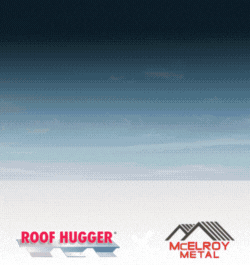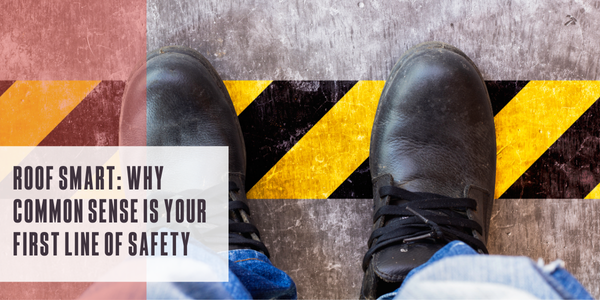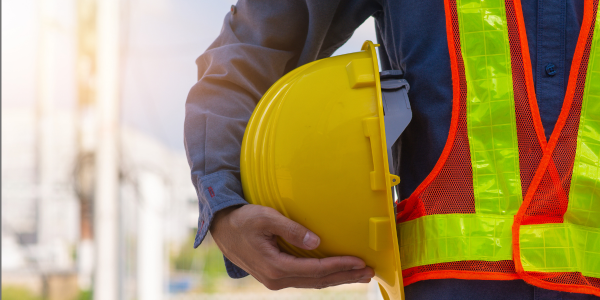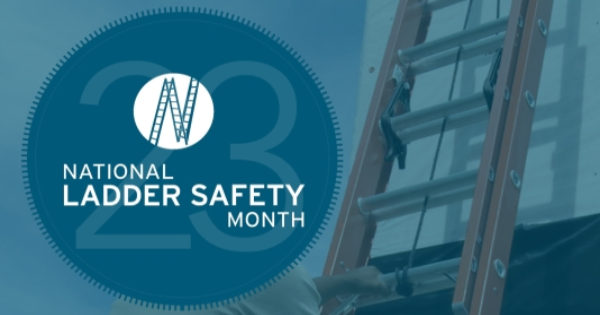UP TO THE MINUTE
Roof smart: Why common sense is your first line of safety
November 16, 2025 at 9:00 a.m.By Cotney Consulting Group.
On every roof, every day, thinking ahead is the first step toward safety.
When considering roofing safety, you might jump straight to harnesses, hard hats, warning lines and OSHA standards. While those are all critical components, there's one safety tool that doesn't get enough credit: common sense. It's not fancy, high-tech or expensive. However, using sound judgment on the job can prevent more accidents than any checklist ever will.
Roofing is one of the most hazardous trades in construction. Workers are exposed to heights, sharp tools, hot materials and fast-paced environments that require constant attention. However, many injuries don't come from complex equipment failures; they happen because someone ignored the obvious. That's where common sense comes in.
What does "roofing common sense" really mean?
Common sense on a roofing crew isn't about instinct or experience alone; it's about paying attention, thinking ahead and refusing to cut corners. It's the awareness to recognize that:
- A cluttered rooftop is a fall waiting to happen.
- A frayed extension cord could start a fire.
- Carrying too much up a ladder is an unnecessary risk.
- Working without water on a 90-degree day is asking for heat exhaustion.
Those small decisions, made moment by moment, keep crews safe.
The danger of overlooking the obvious
One of the most significant risks of any roofing job is complacency. When crews become too comfortable or familiar with a task, they're more likely to skip safety steps, thinking, "I've done this a thousand times."
That's exactly when trouble strikes. Here are some all-too-common examples where common sense could have made the difference:
- Not sweeping debris from a work surface and tripping over a loose shingle
- Ignoring a broken ladder rung and taking a fall
- Climbing up without proper footwear and slipping on wet underlayment
- Leaving tools at the edge of a roof where they fall and injure someone below
These situations can be prevented by slowing down, scanning the environment and making the right call.
Make common sense a daily habit
Here's how roofing contractors and crews can build common sense into everyday safety culture:
1 - Start every job with a safety walk
Before work begins, walk the site with your team. Identify hazards like loose materials, unstable ladders or overhead power lines. Encourage workers to speak up if they see something that doesn't look right.
2 - Keep the workspace clean
A tidy work area is a safer work area. Secure tools, sweep up debris and organize materials. Common sense says it's harder to fall when you're not tripping over clutter.
3 - Hydrate, rest and dress appropriately
On hot days, take regular water breaks. In colder months, layer up. Wear proper footwear, gloves and eye protection. These are simple steps that make a big difference.
4 - Slow down when fatigued
Tired workers make careless decisions. A short break can prevent a serious injury if someone's pushing past their limit. Roofing isn't a race, and safety should never be sacrificed for speed.
5 - Speak up when something feels off
If a setup feels unsafe, a load looks unstable or weather conditions change rapidly, common sense says it's time to pause and reassess. Empower your team to hit the brakes when needed.
Supervisors: Lead with common sense, too
Forepersons and site supervisors set the tone. If they ignore hazards, workers will follow. If they rush the job, others will cut corners. Demonstrating and reinforcing common sense behaviors is one of the most effective ways to influence crew habits.
Encourage team members to trust their judgment, report concerns and avoid risky shortcuts. Reinforce that safety is part of the job, not a separate task.
Teach common sense like a skill
Some workers, especially those newer to the trade, may not immediately recognize hazards or understand why certain precautions are necessary. That's why safety training shouldn't just focus on rules but on situational awareness.
During toolbox talks, incorporate real-world examples of incidents caused by minor lapses in judgment. Use "what would you do" scenarios to promote discussion and keep safety in mind. For example:
"You see a ladder propped against the gutter with no tie-off. It's been used all morning. What should happen before it's used again?"
These discussions normalize speaking up and reinforce that everyone plays a part in safety.
The ROI of common sense
You can spend thousands on PPE and compliance training, and you should. But a smart decision in a critical moment can prevent an injury, save a life or avoid a costly shutdown. The return on investing in common sense is huge:
- Fewer accidents and lost-time injuries
- Lower insurance premiums
- More productive job sites
- Greater crew confidence
- Stronger company reputation
Safety isn't about being perfect. It's about being prepared and paying attention.
Keep it simple, keep it safe
Roofing is challenging work. It takes skill, strength and grit. But no amount of experience makes you invincible. The best roofers are the ones who use their heads as much as their hands.
Making common sense a core part of your crew's mindset alongside all the gear, training and procedures creates a safer, more efficient worksite. So the next time something feels a little off, or you see a shortcut being taken, stop and ask: Is this the smart or risky move?
Learn more about Cotney Consulting Group in their Coffee Shop Directory or visit www.cotneyconsulting.com.





















Comments
Leave a Reply
Have an account? Login to leave a comment!
Sign In